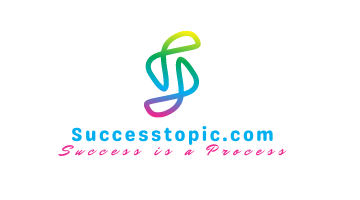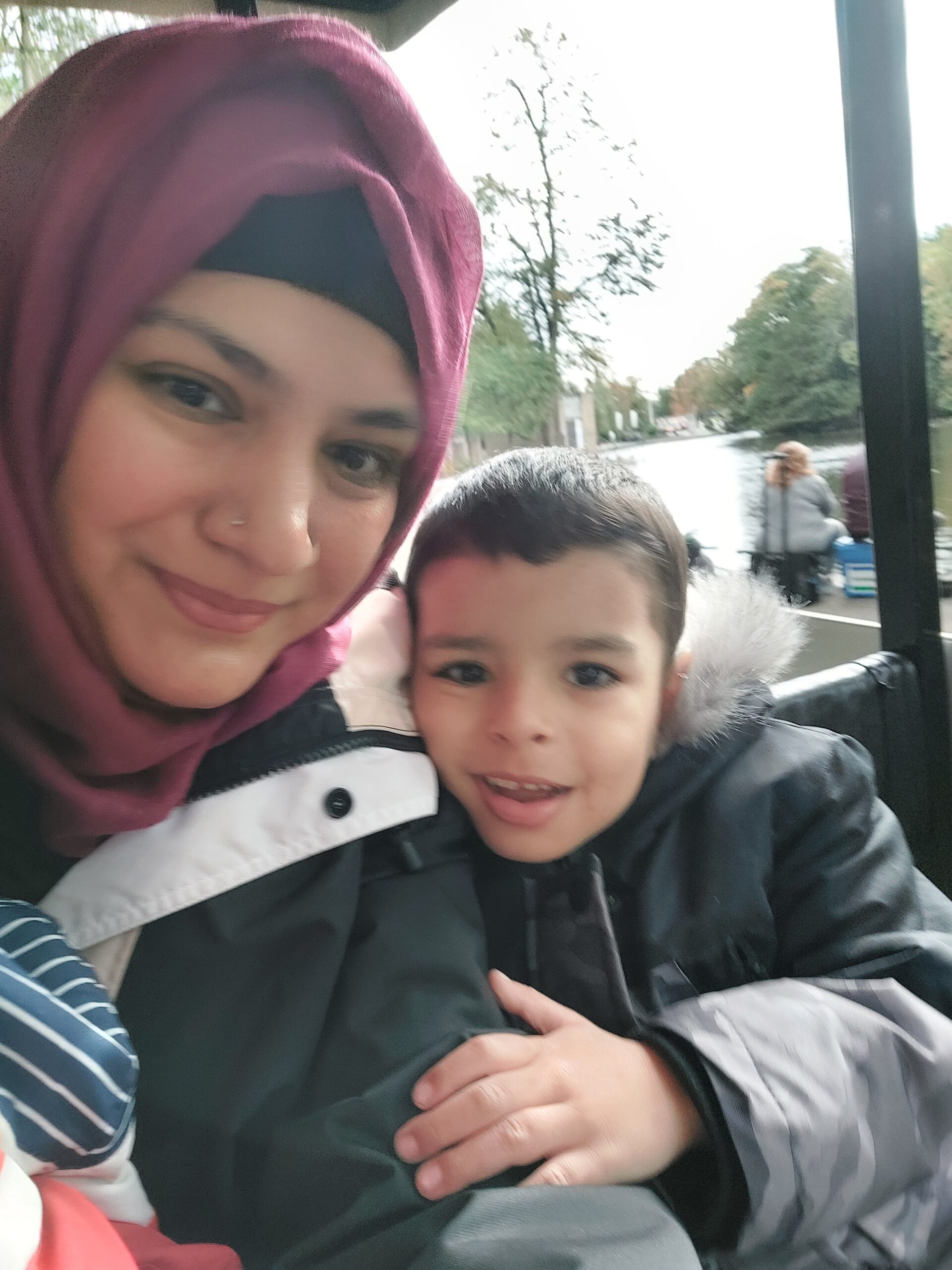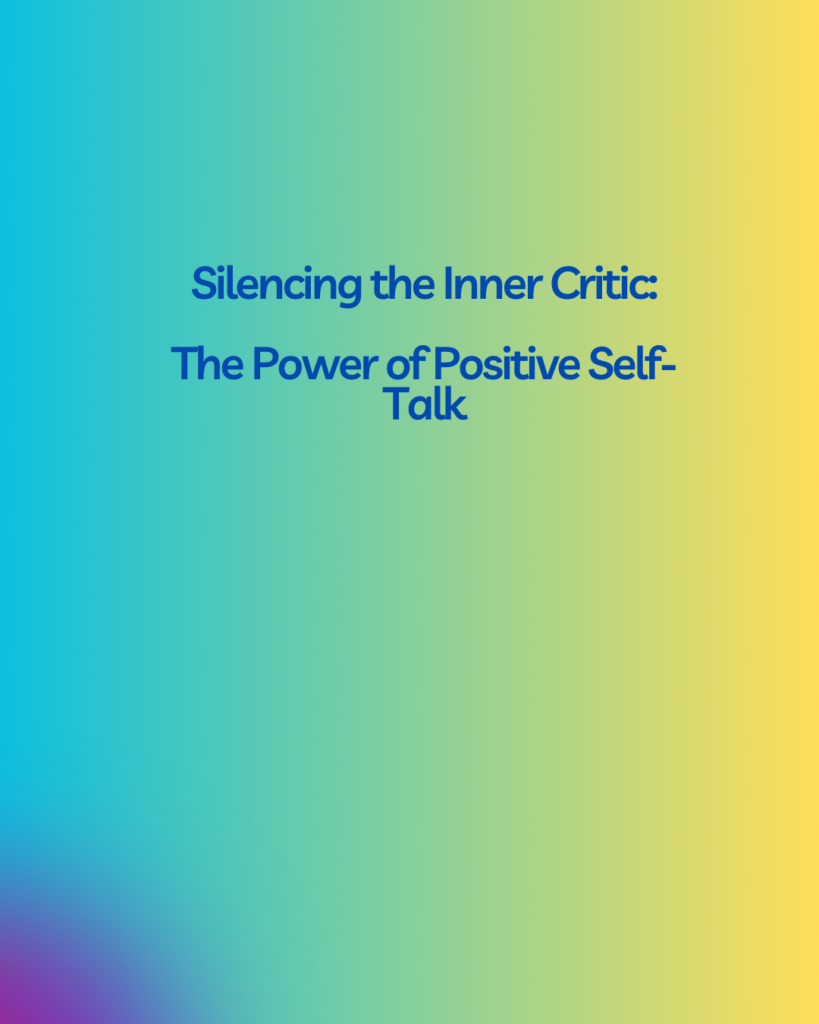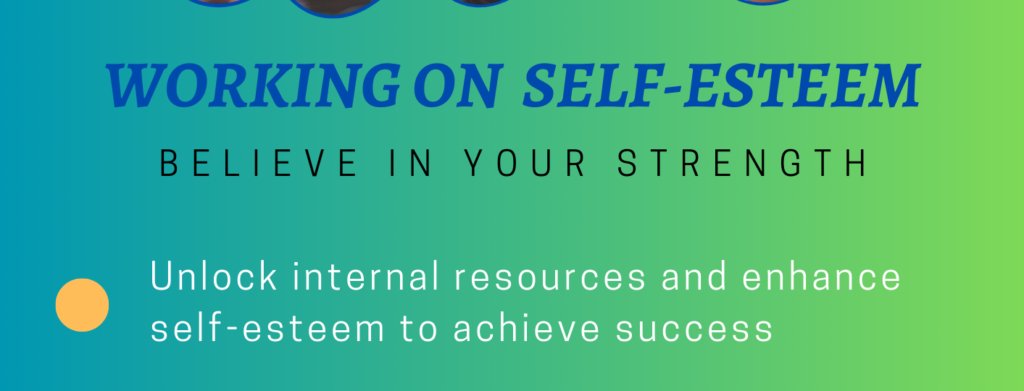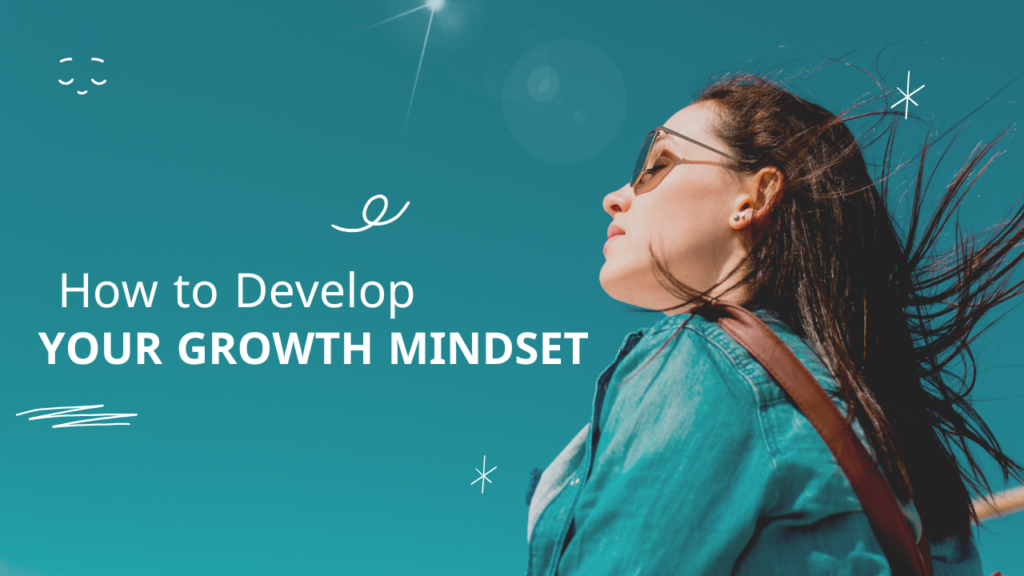
Growth Mindset for Success
A growth mindset is extremely important to cultivate if you want success. It is believed that with effort and practice, one’s talents and abilities can be developed and strengthened over time. You are less likely to become discouraged if you have the right thinking, and you are more likely to take risks and try new things. This blog post will look at how to cultivate a growth mindset for success.
Psychologists have studied the term growth mindset for many years. One particular area of interest is the difference between fixed and growth mindsets. A fixed mindset is when someone believes their abilities and traits are predetermined and cannot be changed. On the other hand, a growth mindset is when someone believes that their abilities and traits can be developed through effort and learning.
What is a growth mindset?
The belief that intelligence, talents, and abilities can be developed through effort, practice, and learning is referred to as a growth mindset. It is the polar opposite of fixed thinking, which holds that these characteristics are fixed and cannot be changed.
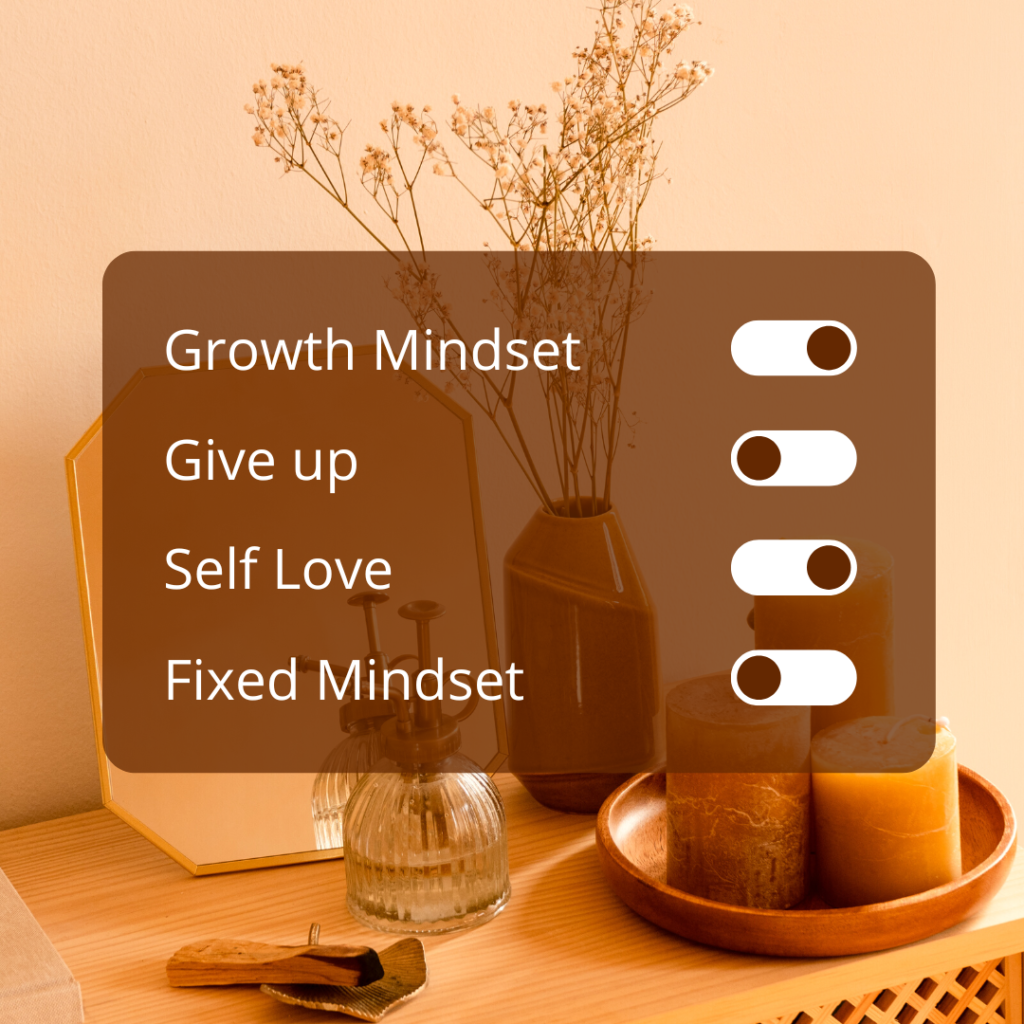
This term applies to all aspects of life, not intelligence or academic success. It encourages people to take on challenges, understand social psychology, overcome obstacles, and go beyond their comfort zone.
People with realistic goals welcome challenges and see failures as opportunities for growth, whereas those with a fixed mindset avoid challenges and give up easily when confronted with obstacles. Individuals who embrace the learning process believe there is no limit to what they can achieve if they are willing to work hard and dedicate themselves.
What are the five characteristics of a growth mindset?
It is a way of approaching challenges and obstacles in life. It’s the belief that you can improve and grow, no matter your circumstances.
Here are the five characteristics:
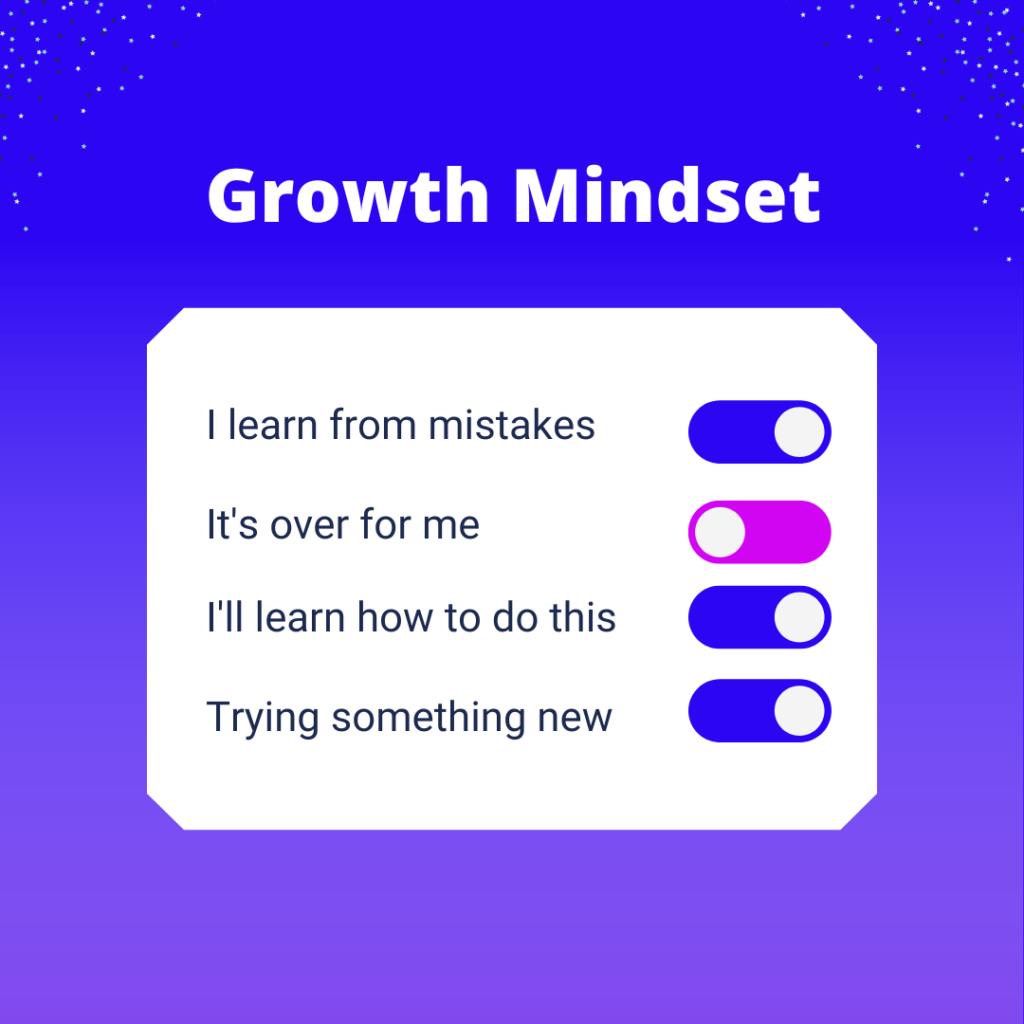
1. You believe you can change.
People with intellectual abilities tend to see challenges as opportunities for growth and learning. They are willing to take risks and try new things, even if it means making mistakes.
2. You believe your intelligence and abilities are malleable, not fixed.
People with natural talent understand that effort is necessary for success. They do not believe in talent alone but instead recognize that hard work and practice are essential for achieving one’s goals.
3. Persistence
Individuals with intellect understand that progress takes time and effort. They are willing to put in the work and are not deterred by setbacks or failures. Instead, they see these as opportunities to learn and improve.
You believe failure is useful—it gives you information about how to improve and makes it easier for you to take risks because you know that failure isn’t the end of the world!
4. Seeing effort as necessary
People with good strategies understand that effort is necessary for success. They do not believe in talent alone but instead recognize that hard work and practice are essential for achieving one’s goals. You believe success is about working hard and making progress over time (even if it takes longer than others) rather than being born into privilege or just being “naturally” good at something.
5. Embracing learning
People with growth thinking patterns are lifelong learners. They enjoy learning new things and are motivated to improve their knowledge and skills in various areas. They see learning as an ongoing process rather than something that ends after formal education.
Can We Change OUR Mindset?
Yes, it is possible to change.
While individuals may have developed certain beliefs and thought patterns over time, these can be challenged and changed through intentional effort and practice. It’s important to note that changing a mindset is not always easy and may require significant effort and dedication.
Many believe that our thinking is fixed and we cannot change it. However, recent research suggests altering our thoughts with conscious effort is possible. This means that we can move from a fixed to a growth mindset.
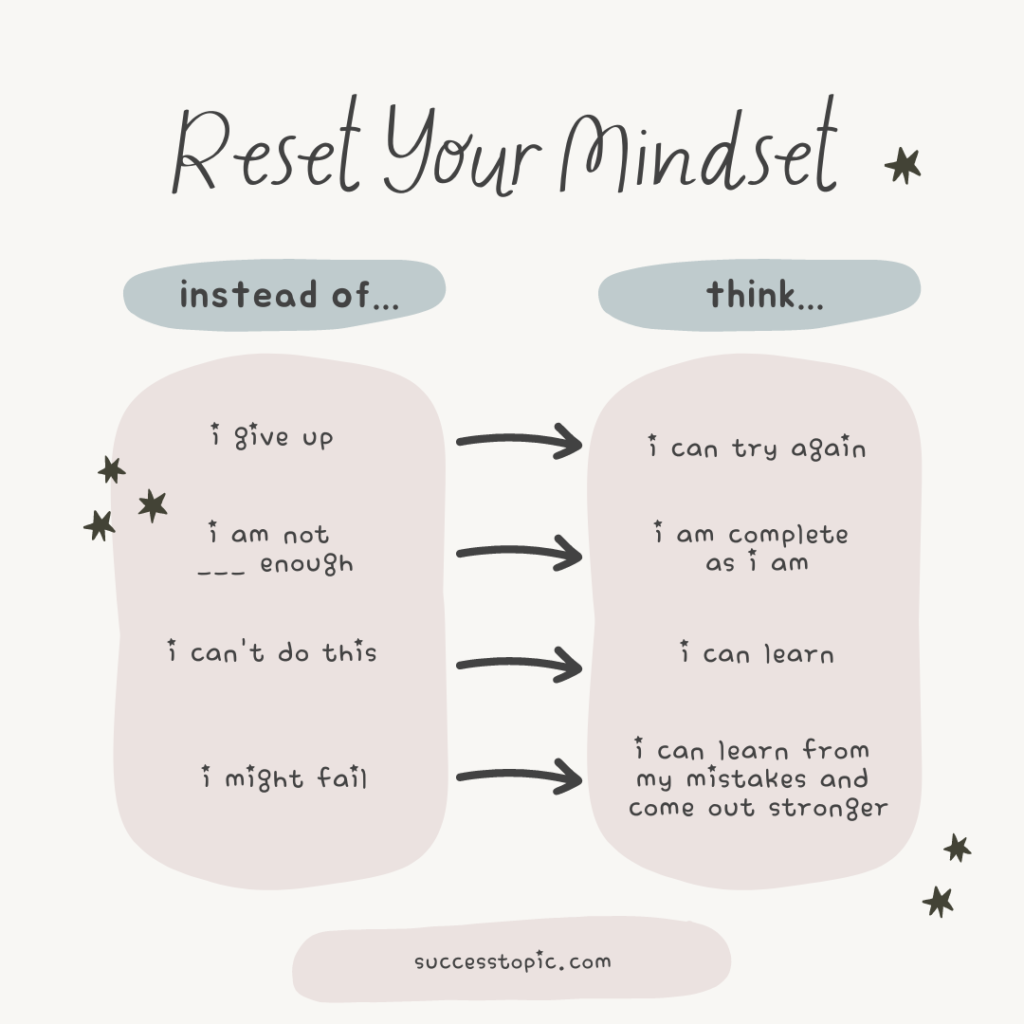
Dr. Carol Dweck, one of the most prominent researchers in this field, suggests that a fixed mindset leads to a reliance on our current skills, making us less likely to try new things or take risks. In contrast, good strategies motivate us to develop and grow continuously, setting us up for success in the long run.
At its core, it comes down to believing in the potential for self-regulation.
How to change the mindset from fixed to growth?
Aware
The first step is to become aware of your current patterns of thinking and beliefs. This can involve reflecting on your thoughts and behaviors, seeking feedback from others, and challenging your assumptions about yourself and the world around you.
Engage
Once you have identified areas where you would like to shift your thinking, engaging in intentional practice is important to reinforce the new basic qualities. This can involve seeking new experiences, trying new things, and consciously challenging negative feedback or limiting thoughts.
Take Support
It’s also helpful to surround yourself with individuals who support and encourage your self-regulation. This can include friends, family members, and colleagues who share your values and beliefs, as well as seeking out mentors and coaches who can provide guidance and support.
It’s important to note it is not a one-time event but an ongoing process. It requires patience, perseverance, and a willingness to challenge yourself and take risks. With time and effort, however, it is possible to develop a growth mindset and achieve greater success and fulfillment in your personal and professional life.
The neuroscience of a growth mindset
The concept of a growth mindset has been studied extensively by psychologists and educators, but what does neuroscience say about this approach to learning and development?
Neuroscience research has shown that our brains can change and adapt throughout our lives. This means that our innate abilities do not limit us, but rather we have the potential to develop new skills and talents through intentional effort and practice. This process is known as neuroplasticity, and it involves the creation of new neural connections and the strengthening of existing ones.
According to research, our brains are actually rooted in neuroscience. According to studies, adopting a fixed thinking pattern limits the brain’s natural plasticity and learning ability. When we adopt a growth pattern, our brains become more plastic, allowing us to improve our learning and overall performance.
Neuroplasticity and Growth Mindset
The concept of neuroplasticity is one of the most important aspects of neuroscience. Neuroplasticity is the brain’s ability to change and reorganize itself due to experiences or learning. This means that our brains are constantly changing as we are exposed to new ideas and experiences. In other words, neural pathways in the brain can be altered, allowing us to alter our beliefs and behavior.
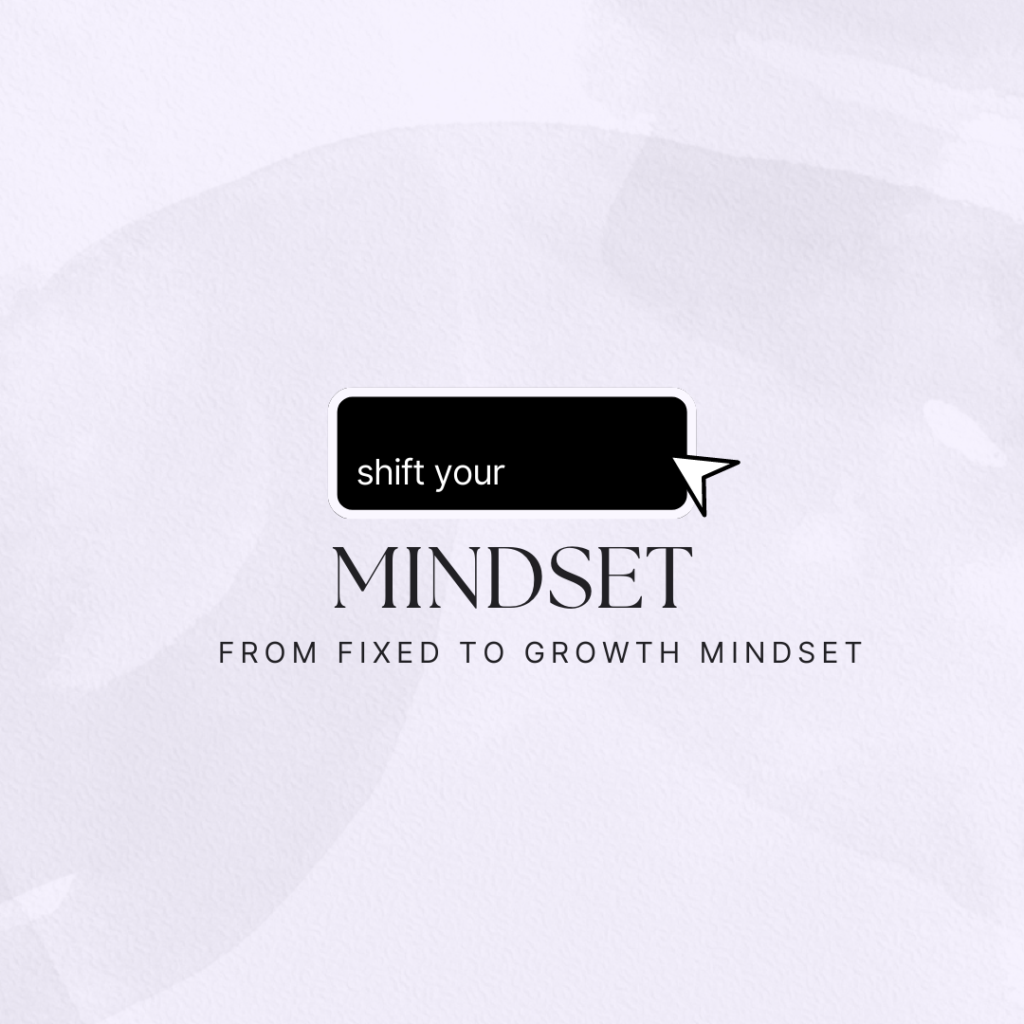
We know that a fixed pattern causes the brain to become less plastic, making it difficult to learn and grow. When we adopt a growth mindset, our brains become more plastic, allowing us to improve our learning. So, when it comes to change, neuroscience is crucial.
Cognitive Processing
Another important aspect of the neuroscience of a growth mindset is its role in cognitive processing. Research has shown that individuals with growth thinking tend to approach challenges with greater cognitive flexibility and adaptability, which allows them to find creative solutions to problems. They are also more likely to engage in deeper learning and information processing levels, as they view challenges as opportunities for growth and development.
On the other hand, individuals with fixed thinking may approach challenges in a more rigid and inflexible way, limiting their ability to find creative solutions and adapt to changing situations.
How does a Growth mindset influence our motivation?
Aside from neuroplasticity, neuroscience explains how our mindsets can influence our motivation. According to research, when we have a fixed mindset, our motivation is more focused on avoiding failure than achieving success. Our motivation in a growth mindset is more focused on pursuing challenges and improving our skills.
The neuroscience of the growth mindset reveals how our beliefs and attitudes shape our lives and future successes. We can unlock our potential for learning and improvement by adopting a growth mindset and leveraging the power of neuroplasticity.
How to promote Neuroplasticity?
The neuroscience of a growth mindset highlights the importance of mindfulness and self-reflection in promoting neuroplasticity. It is reported that mindfulness practices, such as meditation and self-awareness, can promote the growth and development of new neural connections in the brain. By engaging in these practices, individuals can cultivate a growth mindset and promote the development of new skills and talents.
Carol Dweck’s Growth Mindset
Psychologist Carol Dweck popularized the idea of a growth mindset in her book “Mindset: The New Psychology of Success.”
According to Dweck, individuals with a growth mindset tend to achieve more success in their personal and professional lives than those with a fixed mindset. This is because a growth mindset encourages individuals to embrace challenges and persist through difficulties, while a fixed mindset can lead to a fear of failure and a reluctance to take risks.
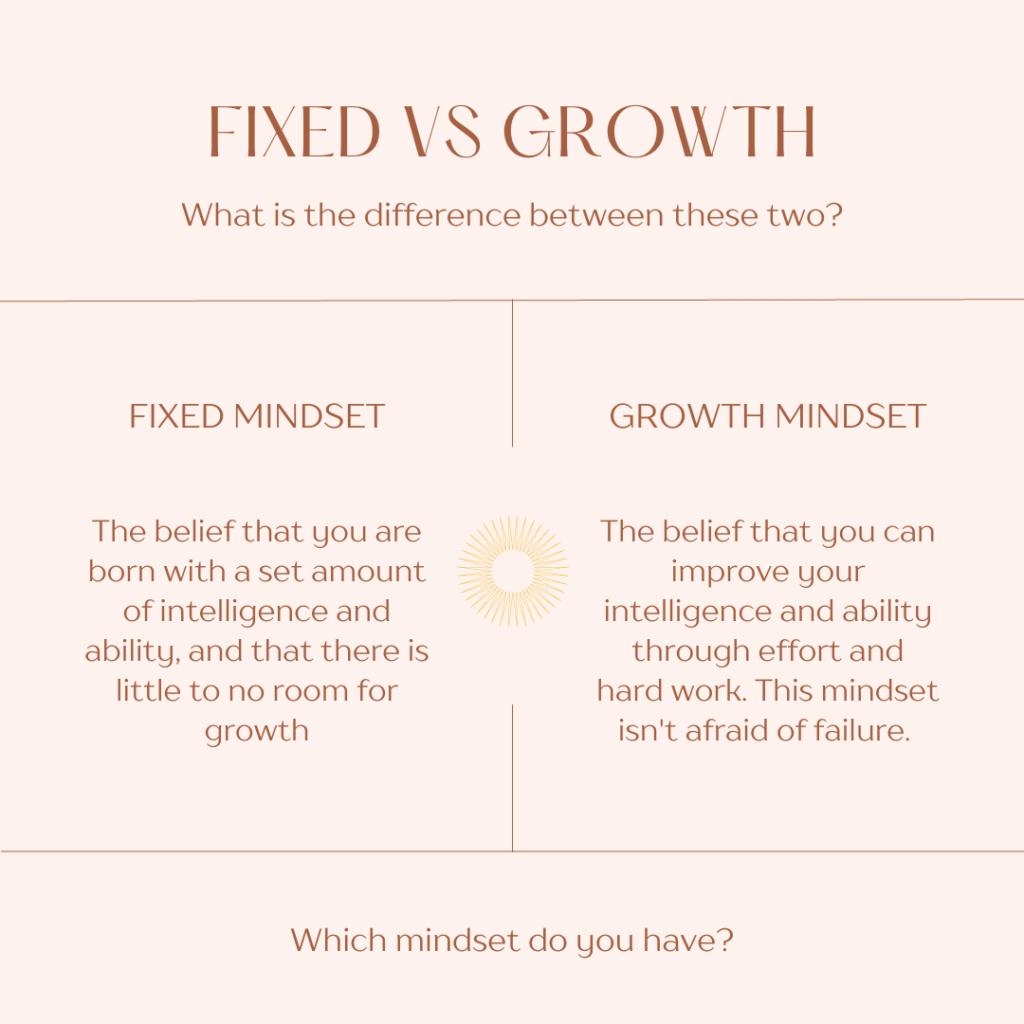
A fixed mindset, according to Dweck, is when a person believes that their intelligence, skills, and abilities are fixed and cannot be changed. A growth mindset, on the other hand, is when a person believes that they can improve their intelligence, skills, and abilities through hard work, dedication, and practice.
Dweck also claims that having a growth mindset can improve learning by encouraging people to focus on the process of learning rather than the outcome. When confronted with difficult tasks or experiences, this can help people become more resilient and optimistic. Furthermore, a growth mindset can lead to increased learning engagement and motivation.
How to Develop a Growth Mindset?
To develop a growth mindset, we must first understand the neuroscience behind it. The brain is a highly adaptable organ, with neuroplasticity allowing us to change how we think and process information.
We can take advantage of this concept by actively participating in activities that will assist us in shifting our mindsets from fixed to growth. This could include trying new things, taking on challenges, and maintaining a positive attitude toward learning and failure.
Dr. Carol Dweck’s work can provide additional guidance in addition to understanding the neuroscience behind mindset change. Dweck’s growth mindset research has focused on developing a more positive view of learning and failure as necessary steps toward success. When interacting with children, she suggests praising effort over achievement and emphasizing the process rather than the outcome.
Finally, improving our learning environment is important in cultivating a growth mindset. Creating a safe space for experimentation and failure contributes to an environment that encourages risk-taking and exploration. Developing skills such as resilience and self-awareness can also contribute to developing a growth mindset.
Few Steps to Develop a Growth Mindset
If you want to develop a growth mindset, there are several strategies you can try:
Embrace challenges
Instead of avoiding challenges or sticking to what you already know, seek out new challenges and take risks. This can help you build resilience and improve your skills.
View failure as an opportunity for growth.
Instead of seeing failure as a reflection of your inherent abilities, view it as an opportunity to learn and grow. Ask yourself what you can do differently next time to achieve a better outcome.
Practice self-reflection
Take time to reflect on your experiences and identify areas where you can improve. This can help you identify patterns in your thinking and behavior that may be holding you back.
Learn from others
Seek out feedback and advice from others, and be open to learning from their experiences. This can help you broaden your perspective and gain new insights.
Focus on effort, not just outcome.
Instead of focusing solely on the outcome of your efforts, pay attention to the effort you put in. Recognize and celebrate your hard work and perseverance, even if you don’t achieve the desired outcome.
Cultivate a growth mindset environment.
Surround yourself with people who encourage and support growth mindset thinking.
Tips to Achieve a Growth Mindset?
A growth mindset is the best way to learn and develop new skills. It’s the opposite of a fixed mindset, which is the belief that you are who you are and can’t change. It helps us to overcome challenges and learn new things, but it’s not easy to cultivate.
Here are some tips for growing:
1) Believe in yourself—when you believe in yourself, you’ll be more likely to try new things and take risks when they’re necessary.
2) Find a mentor—a mentor can help guide you along the way by giving advice or offering encouragement when things get tough. And having someone who believes in you is always a great motivator!
3) Set goals—wherever possible, set short-term goals that will lead up to your long-term goal.
4) Celebrate your success—this one sounds like an obvious one, but it really does make a difference!
Benefits of a Growth Mindset
There are many benefits to developing a growth mindset. Here are some of the most important ones:
Increased resilience
Individuals with a growth mindset tend to be more resilient in the face of setbacks and failures. They view these experiences as opportunities for learning and growth rather than as indicators of their inherent abilities.
Improved learning
A growth mindset encourages individuals to seek out new challenges and take risks, which can lead to improved learning and skill development.
Greater creativity
When individuals are not afraid of failure, they tend to be more creative and innovative in their thinking. A growth mindset encourages individuals to think outside the box and explore new ideas.
Better relationships
A growth mindset can lead to better relationships, as individuals are more willing to accept feedback and learn from others. This can improve communication and collaboration in personal and professional settings.
Increased motivation
Individuals with a growth mindset tend to be more motivated and engaged in their work. They see their efforts as leading to improvement and progress rather than simply reflecting their innate abilities.
Final Wrap up
In summary, the neuroscience of a growth mindset suggests that our brains have the potential to change and adapt throughout our lives, and it can play a crucial role in promoting this process. By engaging in challenging experiences, promoting cognitive flexibility, and cultivating mindfulness and self-reflection, individuals can develop a growth mindset and achieve greater success and fulfillment in their personal and professional lives.
